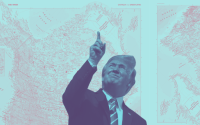Common Dreams / Published on Tuesday, May 2, 2006 by the Chicago Sun Times Jesse Jackson
May 1, a day of worker celebration, began in the United States around the struggle for the eight-hour day. Now it is honored across the world, but largely ignored in the United States. How fitting then that this year, immigrant workers from across the world have revived the day, marching to defend their dignity -- and energizing an entire movement for social justice.
They march to make their humanity known. They march to make their views known. They march because they will not be victims or pawns, but will be the subjects of their own history in this country. The new immigrants seek precisely what has made our country great: They thirst for democracy and freedom, a job and security for their families, for citizenship rights and to leave repression and poverty behind.
Lower-wage workers in this country -- many of them African Americans -- worry that employers are using immigrants to displace them, to undermine good jobs, force wages down and weaken labor organizing. But the answer to that isn't to turn on other poor workers. It is to raise the minimum wage (frozen since 1997); bolster union organizing and create a card-check system so a majority of workers can choose a union; run a full employment economy, and crack down on exploitative employers and off-the-books hiring.
Part of the anger directed at immigrants comes from workers understandably scared as manufacturing jobs are shipped abroad and lower-paying service jobs take their place. But global corporations, not immigrants, are taking those jobs abroad. The answer isn't cleaning up immigration, but electing leaders who will challenge the corporate hold over our trade policies.
Each wave of immigration inspires hot anti-immigrant anger and rhetoric -- "illegal alien hordes" are pouring across the border taking jobs away from Americans. We heard it in the "yellow peril" that led to the 1882 Chinese Exclusion Act. It was directed against Irish and Italians immigrants at the turn of the century, who were portrayed as drunk, violent, lazy and dissolute. African-American migrants from the South were cursed as scabs on the "white worker." Now Mexican and other undocumented immigrants are said to threaten African Americans and other poor people, not to speak of the entire "American way of life." With hatred comes violence: Last week, Mayor Antonio Villaraigosa of Los Angeles and California Lt. Gov. Cruz Bustamante received death threats. And a new "Kill Mexicans" video game is piercing its way through the Internet.
Immigrants of previous generations, including African Americans, should see the new undocumented workers as allies, not threats. They share with African Americans a history of repression, of being subjected to back-breaking, soul-deadening work -- or to no work at all.
They also share a common heritage. Less than 10 percent of enslaved Africans ended up in the United States. The vast majority were shipped to Latin America and the West Indies. People of color are brothers and sisters under and of the skin, whether we are called undocumented "Latino" immigrants or "African Americans."
As each wave of immigrants begins to demand fair wages, human rights or citizenship, they are denounced as threatening the American way of life. Critics want to send us back to Africa, back to the plantation, back to Mexico, back to China or shift us to even more barren Native reservations -- even those of us who have been here for generations.
But when the right wing of the House forced through its latest anti-immigrant legislation, which would criminalize 11 million people living in America and all those who provided them with any services, the insult turned to threat.
Criminals? No. They are our mothers, fathers, aunts and uncles. Illegal aliens? No. They are our friends, teachers, church leaders, health care providers and business owners. Whatever differences we may have are dwarfed by our common struggle. So in April and on May 1, immigrants and their human rights supporters took to the streets, reigniting this era's civil rights struggle.
This new immigrant freedom movement is being embraced by African Americans and today's movement for peace and social justice. In today's movement, many undocumented immigrants have already lost jobs, been detained or deported and separated from their families. But like African-American freedom fighters of the 1960s, their minds are "stayed on freedom." As I see it, their rallying cry -- "Si se puede" ("Yes We Can") -- is Spanish for "We Shall Overcome."






